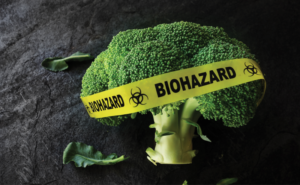
Now imagine that but with a product that could potentially harm customers and damage your brand’s reputation.
Any manufacturer is at risk of a product recall. They can be embarrassing, dangerous and cause irreversible damage to customer loyalty.
Delta Insurance underwriting manager Dinesh Murali is no stranger to thinking about worst-case scenarios. He’s even written a white paper on the subject called ‘Food for Thought’, published in August 2019.
This paper includes data showing that New Zealand’s food recalls have increased significantly since the Food Act was introduced in 2016.
In 2015, at least 18 people were infected with Hepatitis A linked to Patties Food frozen berries in Australia. This led to an 87% decline in net profit and total losses to the company were in excess of AU $8 million.
According to this paper, small-to-medium enterprises (SMEs) are particularly vulnerable to the effects of a product recall as they are less likely to have a dedicated team and back-up funds and less experience managing reputational damage.
The first place Murali says manufacturers should begin is with good quality management systems combined with verification procedures as part of the food manufacturer’s risk management strategy. Business continuity strategies such as recall plans and crisis management plans are equally important.
He says it is also critical that the recall plan is reviewed, tested and periodically simulated.
“This shouldn’t be just for food recalls, but for any crisis. For instance, when Covid-19 hit, it was a crisis for all businesses in the country. Fortunately for Delta we had tried and tested our business continuity plan, which came into effect during the Covid-19 crisis so that our business remained operational with the least amount of disruption.”
Murali says the outcome from the research in the white paper was that New Zealand is more at risk because of a ‘she’ll be right’ attitude.
“Some underestimate the immediate and long-term effects of a product recall. There is an attitude of, ‘if it does happen then it’s not going to affect my business,’ but unfortunately it can.”
Last year there was an extremely damaging incident for the strawberry industry where an individual maliciously placed needles inside strawberries. Copy-cat cases then followed and strawberry growers reported losses of AU $12 million.
“The brand and reputation damage caused by a recall can be long lasting for manufacturers,” Murali says.
“The recall of the products can be monetarily compensated but not the reputation and brand loyalty. Food manufacturers should look beyond insurance and think about the crisis as a business risk that can materially impact their business. Food recall plan should be part of food manufacturer’s continuity plan. If you are not prepared for it, the outcome will inevitably be worse.”

























































































